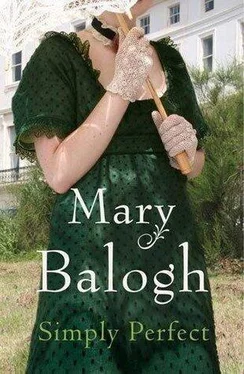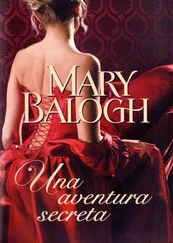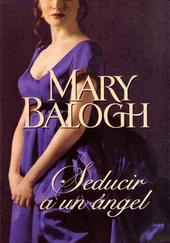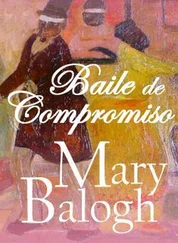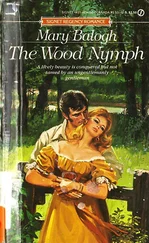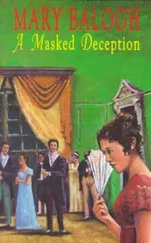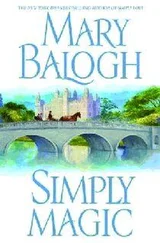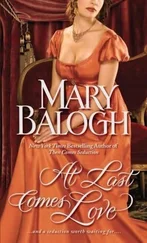Mary Balogh - Simply Perfect
Здесь есть возможность читать онлайн «Mary Balogh - Simply Perfect» весь текст электронной книги совершенно бесплатно (целиком полную версию без сокращений). В некоторых случаях можно слушать аудио, скачать через торрент в формате fb2 и присутствует краткое содержание. Жанр: Старинная литература, на английском языке. Описание произведения, (предисловие) а так же отзывы посетителей доступны на портале библиотеки ЛибКат.
- Название:Simply Perfect
- Автор:
- Жанр:
- Год:неизвестен
- ISBN:нет данных
- Рейтинг книги:3 / 5. Голосов: 1
-
Избранное:Добавить в избранное
- Отзывы:
-
Ваша оценка:
- 60
- 1
- 2
- 3
- 4
- 5
Simply Perfect: краткое содержание, описание и аннотация
Предлагаем к чтению аннотацию, описание, краткое содержание или предисловие (зависит от того, что написал сам автор книги «Simply Perfect»). Если вы не нашли необходимую информацию о книге — напишите в комментариях, мы постараемся отыскать её.
Simply Perfect — читать онлайн бесплатно полную книгу (весь текст) целиком
Ниже представлен текст книги, разбитый по страницам. Система сохранения места последней прочитанной страницы, позволяет с удобством читать онлайн бесплатно книгу «Simply Perfect», без необходимости каждый раз заново искать на чём Вы остановились. Поставьте закладку, и сможете в любой момент перейти на страницу, на которой закончили чтение.
Интервал:
Закладка:
SIMPLY PERFECT by Mary Balogh A Delacorte Press Book / April 2008
1
Claudia Martin had already had a hard day at school. First Mademoiselle Pierre, one of the nonresident teachers, had sent a messenger just before breakfast with the news that she was indisposed with a migraine headache and would be unable to come to school, and Claudia, as both owner and headmistress, had been obliged to conduct most of the French and music classes in addition to her own subjects. French was no great problem; music was more of a challenge. Worse, the account books, which she had intended to bring up-to-date during her spare classes today, remained undone, with days fast running out in which to get accomplished all the myriad tasks that needed doing. Then just before the noonday meal, when classes were over for the morning and discipline was at its slackest, Paula Hern had decided that she objected to the way Molly Wiggins looked at her and voiced her displeasure publicly and eloquently. And since Paula’s father was a successful businessman and as rich as Croesus and she put on airs accordingly while Molly was the youngest—and most timid—of the charity girls and did not even know who her father was, then of course Agnes Ryde had felt obliged to jump into the fray in vigorous defense of the downtrodden, her Cockney accent returning with ear-jarring clarity. Claudia had been forced to deal with the matter and extract more-or-less sincere apologies from all sides and mete out suitable punishments to all except the more-or-less innocent Molly. Then, an hour later, just when Miss Walton had been about to step outdoors with the junior class en route to Bath Abbey, where she had intended to give an informal lesson in art and architecture, the heavens had opened in a downpour to end downpours and there had been all the fuss of finding the girls somewhere else to go within the school and something else to do. Not that that had been Claudia’s problem, but she had been made annoyingly aware of the girls’ loud disappointment beyond her classroom door as she struggled to teach French irregular verbs. She had finally gone out there to inform them that if they had any complaint about the untimely arrival of the rain, then they must take it up privately with God during their evening prayers, but in the meantime they would be silent until Miss Walton had closed a classroom door behind them. Then, just after classes were finished for the afternoon and the girls had gone upstairs to comb their hair and wash their hands in readiness for tea, something had gone wrong with the doorknob on one of the dormitories and eight of the girls, trapped inside until Mr. Keeble, the elderly school porter, had creaked his way up there to release them before mending the knob, had screeched and giggled and rattled the door. Miss Thompson had dealt with the crisis by reading them a lecture on patience and decorum, though circumstances had forced her to speak in a voice that could be heard from within—and therefore through much of the rest of the school too, including Claudia’s office. It had not been the best of days, as Claudia had just been remarking—without contradiction—to Eleanor Thompson and Lila Walton over tea in her private sitting room a short while after the prisoners had been freed. She could do with far fewer such days. And yet now! Now, to cap everything off and make an already trying day more so, there was a marquess awaiting her pleasure in the visitors’ parlor downstairs. A marquess, for the love of all that was wonderful! That was what the silver-edged visiting card she held between two fingers said—the Marquess of Attingsborough. The porter had just delivered it into her hands, looking sour and disapproving as he did so—a not unusual expression for him, especially when any male who was not a teacher invaded his domain. “A marquess,” she said, looking up from the card to frown at her fellow teachers. “Whatever can he want? Did he say, Mr. Keeble?” “He did not say and I did not ask, miss,” the porter replied. “But if you was to ask me, he is up to no good. He smiled at me.” “Ha! A cardinal sin indeed,” Claudia said dryly while Eleanor laughed. “Perhaps,” Lila suggested, “he has a daughter he wishes to place at the school.” “A marquess?” Claudia raised her eyebrows and Lila looked suitably quelled. “Perhaps, Claudia,” Eleanor said, a twinkle in her eye, “he has two daughters.” Claudia snorted and then sighed, took one more sip of her tea, and got reluctantly to her feet. “I suppose I had better go and see what he wants,” she said. “It will be more productive than sitting here guessing. But of all things to happen today of all days. A marquess.” Eleanor laughed again. “Poor man,” she said. “I pity him.” Claudia had never had much use for the aristocracy—idle, arrogant, coldhearted, nasty lot—though the marriage of two of her teachers and closest friends to titled gentlemen had forced her to admit during the past few years that perhaps some of them might be agreeable and even worthy individuals. But it did not amuse her to have one of their number, a stranger, intrude into her own world without a by-your-leave, especially at the end of a difficult day. She did not believe for a single moment that this marquess wished to place any daughter of his at her school. She preceded Mr. Keeble down the stairs since she did not wish to move at his slow pace. She ought, she supposed, to have gone into her bedchamber first to see that she was looking respectable, which she was quite possibly not doing after a hard day at school. She usually made sure that she presented a neat appearance to visitors. But she scorned to make such an effort for a marquess and risk appearing obsequious in her own eyes. By the time she opened the door into the visitors’ parlor, she was bristling with a quite unjustified indignation. How dared he come here to disturb her on her own property, whatever his business might be. She looked down at the visiting card still in her hand. “The Marquess of Attingsborough?” she said in a voice not unlike the one she had used on Paula Hern earlier in the day—the one that said she was not going to be at all impressed by any pretension of grandeur. “At your service, ma’am. Miss Martin, I presume?” He was standing across the room, close to the window. He bowed elegantly. Claudia’s indignation soared. One steady glance at him was not sufficient upon which to make any informed judgment of his character, of course, but really, if the man had any imperfection of form or feature or taste in apparel, it was by no means apparent. He was tall and broad of shoulder and chest and slim of waist and hips. His legs were long and well shaped. His hair was dark and thick and shining, his face handsome, his eyes and mouth good-humored. He was dressed with impeccable elegance but without a trace of ostentation. His Hessian boots alone were probably worth a fortune, and Claudia guessed that if she were to stand directly over them and look down, she would see her own face reflected in them—and probably her flat, untidy hair and limp dress collar as well. She clasped her hands at her waist lest she test her theory by touching the collar points. She held his card pinched between one thumb and forefinger. “What may I do for you, sir?” she asked, deliberately avoiding calling him my lord—a ridiculous affectation, in her opinion. He smiled at her, and if perfection could be improved upon, it had just happened—he had good teeth. Claudia steeled herself to resist the charm she was sure he possessed in aces. “I come as a messenger, ma’am,” he said, “from Lady Whitleaf.” He reached into an inner pocket of his coat and withdrew a sealed paper. “From Susanna?” Claudia took one step farther into the room. Susanna Osbourne had been a teacher at the school until her marriage last year to Viscount Whitleaf.
Читать дальшеИнтервал:
Закладка:
Похожие книги на «Simply Perfect»
Представляем Вашему вниманию похожие книги на «Simply Perfect» списком для выбора. Мы отобрали схожую по названию и смыслу литературу в надежде предоставить читателям больше вариантов отыскать новые, интересные, ещё непрочитанные произведения.
Обсуждение, отзывы о книге «Simply Perfect» и просто собственные мнения читателей. Оставьте ваши комментарии, напишите, что Вы думаете о произведении, его смысле или главных героях. Укажите что конкретно понравилось, а что нет, и почему Вы так считаете.
